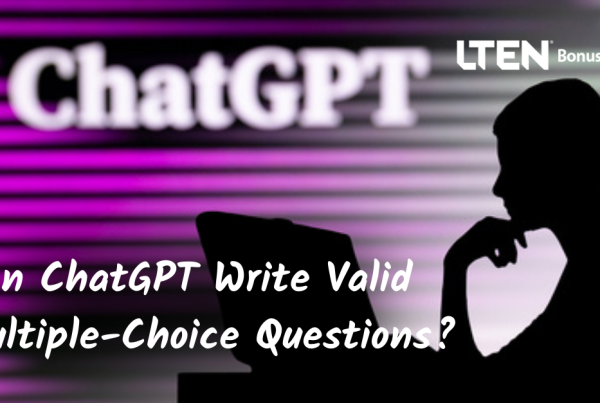
The idiom “connecting the dots” describes one’s ability to understand the relationship between different ideas, experiences and trends. No one is disputing that the evolving healthcare marketplace is changing how prescribing decisions are being made, especially in larger organized customers.
Given the vast changes, life science leaders and learning organizations are becoming increasingly aware of the need to develop an account management mindset for all customer-facing roles. The skills needed to plan and execute differently require revisiting current learning curriculums and coaching methodology. Unfortunately, few organizations approach the need for account management in an integrated manner.
Taking account management to the next level can be achieved with an overall plan to upgrade account management capabilities such as: business acumen, strategic planning, relationship building, teamwork, compliant communications, and execution excellence. After working with a number of biotech/pharmaceutical companies, the following represents a list of top 10 lessons learned to create an Account Management Mindset.
- Focus on marketplace knowledge first
Start by ensuring customer-facing employees obtain baseline knowledge on the various healthcare stakeholders and business models impacting prescribing decisions. This includes expanding knowledge in topics such as: accountable care organizations, integrated delivery networks, pharmacy benefit managers, oncology care and other evolving business models. Learning professionals must make sure this information stays current. - Analyze the healthcare ecosystem
Each geographic marketplace is unique. It is critical for customer-facing individuals and account teams to identify and align on who the dominant healthcare stakeholders are (organizations or individuals), as well as the over-riding healthcare policies that impact prescribing decisions. Account teams that follow a process to analyze the current state and can anticipate changes (e.g., stakeholder consolidations, mergers or new players entering the market) are able to plan and execute more effectively. Learning professionals need to provide resources and train employees on how to evaluate marketplace dynamics such as the business environment, demographics and state policy to understand healthcare delivery in a given marketplace. - Delve deeper with account profiling skill development
One basic principle of account management is that each account is different with unique clinical, business and organizational drivers. It is important to systematically profile each account to uncover the customer’s drivers. This process will assist in determining how your company’s portfolio and priorities align. Customer engagement discovery skills are key to uncovering these unique drivers. More importantly, sharing information across all customer-facing roles ensures deeper understanding and opportunity identification. - Enhance data analysis and business acumen capabilities
Business acumen is defined as “drawing sound conclusions from information and then taking the appropriate action steps.” Field sales teams and others are often provided various reports, yet the ability to review, evaluate and draw meaningful insights from these reports vary. To address this need, learning professionals need to include data analysis skill development to enhance customer facing teams’ ability to understand what is happening and why. These insights are needed to ensure account teams can execute against priorities and opportunities. - Build relationships and customer engagement skills
With larger organized customers and multiple people calling on the same account, customer-facing employees need additional learning and support to improve relationship skills. Internally, across account teams, employees should be focused on teamwork and collaboration for shared goals. Externally, employees need skills in stakeholder mapping and advancing business-to-business relationships to help yield higher levels of trusted partnership. - Clearly define the Account Planning Process
An organization that provides specific guidance to their employees on how to develop and execute coordinated account plans in a compliant manner will increase accountability for achieving results. Once processes are defined, organizations play an important role in developing learning programs and tools to further enhance strategic planning capabilities and support plan execution. - Consider creating an Account Leadership Development Program (ALD)
A “best-in-class” ALD identifies, develops, prepares, and eventually moves talent into critical account management roles. The program design should also include foundational knowledge and advanced negotiation, customer engagement, and field collaboration skill development. An effective ALD has its own curriculum roadmap, process for identifying high-potential employees, assessment instructions, and action learning projects to develop account management skills. - Develop account management leadership and coaching skills
Field managers require skills to coach individuals who call upon more complex accounts with multiple stakeholders. Leadership development and coaching programs need to be retooled with a primary focus on building sophisticated account management and business acumen skills. Field sales leaders need support in understanding the evolving marketplace and how best to coach their direct reports to uncover needs and work across matrix teams in a more collaborative and coordinated manner. - Utilize a variety of learning methodologies
Create a learning culture that deploys assets through self-paced, virtual and leader-led delivery methods. This blended approach will allow for real-time application with existing customer challenges while limiting time away from the field, keeping costs down and strengthening practical account management skills. - Take time to measure success
Measuring training and event success should be moved beyond program-level evaluations. Competency-based assessments are useful to determine the extent to which an individual can demonstrate specific account management behaviors. In addition, individualized development plans should be updated on an ongoing basis. Specific quantitative and qualitative measures, along with key performance indicators should be identified to measure behavior change.
The “connect the dots” strategy for creating an effective account management mindset begins when leaders and/or learning organizations first recognize the need for this important shift. It will be important to identify the overall company vision and the specific learning needs for various customer-facing roles by evaluating existing assets and developing an overall account management learning curriculum. Moving from strategy to effective execution requires a comprehensive approach and leadership support. By leveraging these top 10 lessons learned, an organization can take positive steps to enhance skills and develop talent. More importantly, creating an account management mindset through an effective curriculum and focused coaching supports the ability to achieve results.
Dr. Wendy Heckelman is president and founder of WLH Consulting. Sheryl Unger provides project management support for WLH Consulting. Email them at wendy@wlhconsulting.com and sheryl@wlhconsulting.com.








